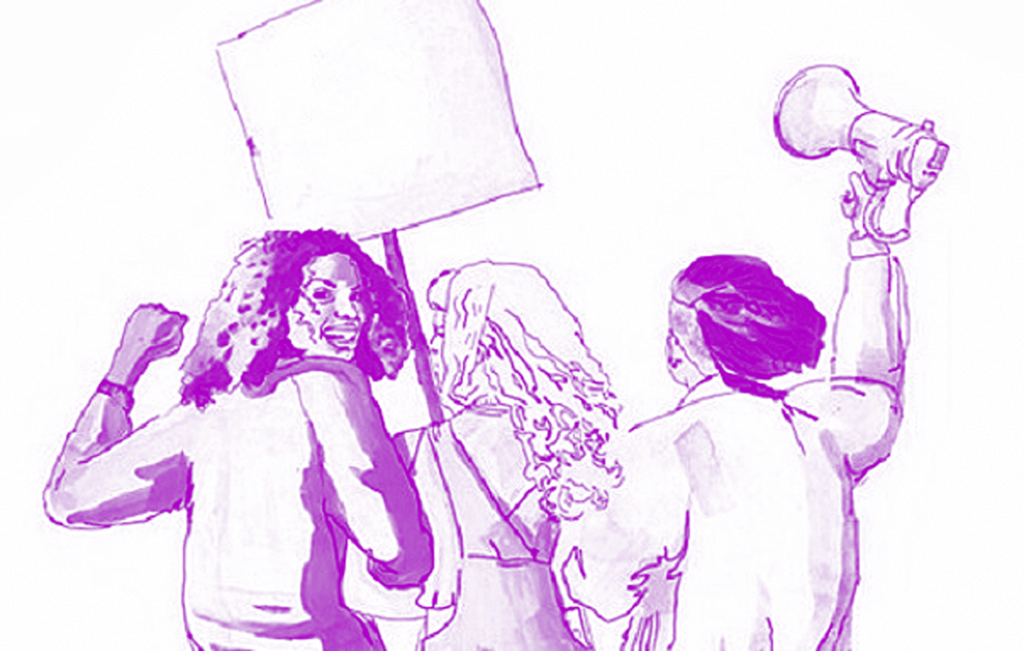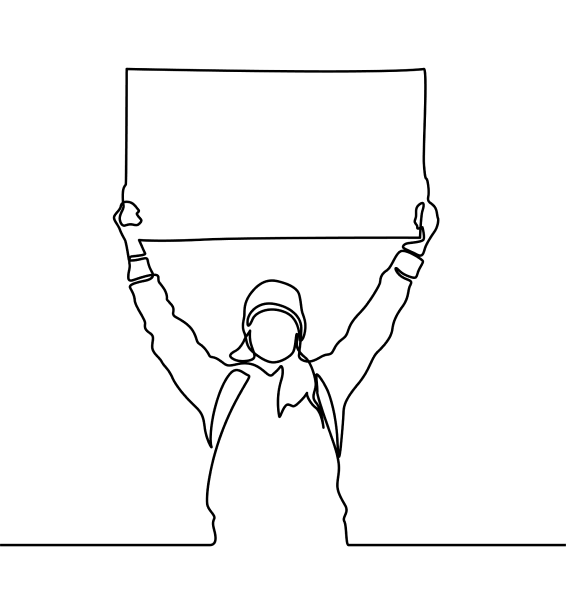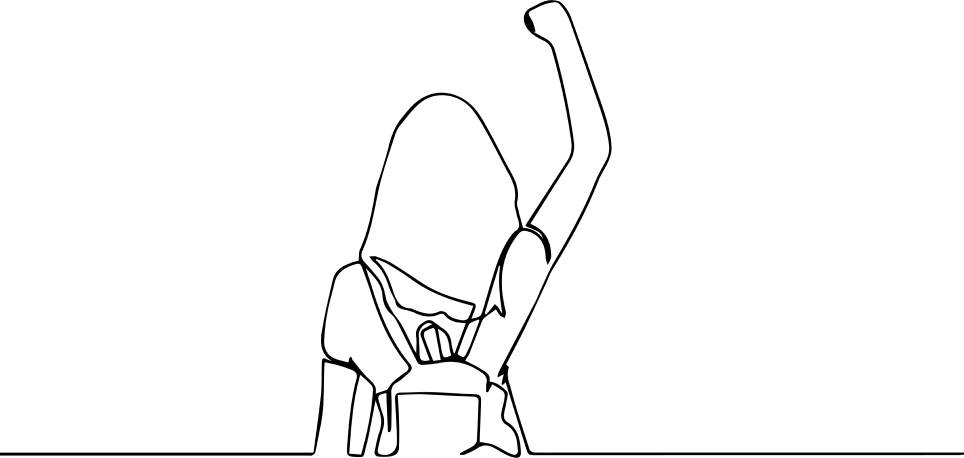Welcome to the FLUCHT-GENDER network portal!
This website is dedicated to the rights and needs of refugee girls and young women. Our database brings together resources from diverse initiatives across Germany, to help you quickly find information and support. The database is intended to keep growing and we are always grateful for new entries.

Database
The database lists relevant advice/counseling services, publications, campaigns, organizations, initiatives and position papers, with details of specific services, topic-focused materials, links and contact details. Content is continuously updated and expanded.
If you have a suggestion to add to the database, please use the form. With your help, more people can connect and access the services they need.
Refugee Law Clinic Trier e.V.
(Article) Women are (not) a social group?! On the concept of women-specific persecution in current case law, 2023
Case law is very
(Judgment) EuGH issues landmark ruling on gender-specific persecution, 2024
In the past, women fleeing gender-based violence were often denied recognition as refugees. The
(Report) Preventing and combating violence against women and domestic violence, 2022
On October 7, 2022, the GREVIO (Group of experts on action against
Glossary
The glossary explains various topics database entries are categorized under, to help you refine your search.
Gender-based asylum claims
If you have fled persecution linked to your gender or sexual orientation, you may have the right to claim asylum on gender-related grounds.
Gender-based persecution may include FGM/cutting, forced marriage, human trafficking, honor violence, sexual assault or domestic violence - or threats of any of the above. Lesbian, gay, bisexual, trans, intersex and queer (LGBTIQ+) people are particularly vulnerable to gender-related persecution.
German asylum procedures treat gender-based violence differently depending on whether persecution took place in an asylum seeker's country of origin, or after they fled. For more information on asylum procedures and specialized counseling centers: bff - Frauen gegen Gewalt e.V.
Female genital mutilation/cutting (FGM/C)
FGM/C involves damage to, removal, or partial removal of the external female genitalia (vulva). In over 30 countries, FGM/C is practiced for cultural, social or religious reasons, usually on girls between the ages of four and 14. In some cases, it can have life-threatening consequences, such as increasing the risk of HIV infection. Due to the risk of serious physical, psychological and social consequences, FGM/C violates the human right to physical integrity and to bodily and sexual autonomy. German law considers FGM/C among gender-based grounds for asylum.
For more information see https://fim-frauenrecht.de/unsere-themen/genitalbeschneidung, or https://www.proasyl.de/news/weibliche-genitalverstuemmelung-ist-ein-asylgrund/
https://fim-frauenrecht.de/unsere-themen/genitalbeschneidung
https://www.proasyl.de/news/weibliche-genitalverstuemmelung-ist-ein-asylgrund/
Psychosocial and therapeutic support
Psychosocial support can take the form of counseling, socio-educational, psychiatric and psychotherapeutic services. It can also involve creative and social activities that are sensitive to participants' cultural identity, legal status and/or experiences of trauma.
Psychosocial support for refugee women and girls must take an intersectional approach to issues around race and gender.
A human rights-based approach to treatment must be rooted in solidarity with the patient, and cannot focus exclusively on mental illness without considering the social/societal factors that affect a person's mental health.
Appropriate support requires comprehensive understanding of individual and migration-related circumstances, including the contexts in which violence emerges and is perpetrated.
Empowerment
The concept of empowerment has roots in US civil rights and new social movements, and is therefore explicitly political. Over recent years, empowerment has increasingly been applied across various fields in Germany, including social work and psychosocial practice.
"The concept of empowerment from a race-critical perspective stands for autonomy, self-advocacy, self-liberation and political struggle. Empowerment describes the process by which structurally disadvantaged people resist the deficient gaze directed at them, and develop their own capacity to engage in political and social decision-making processes, and so improve their circumstances, irrespective of the social majority's benevolence." (Was does empowerment actually mean? IDA e.V., 2018. )
In a psychosocial context, empowerment is understood as recognizing your own resources and strengths and using them to take control and shape your own life (cf. Norbert Herriger (2020): Empowerment in Social Work. An Introduction, p. 15)
Powersharing
Powersharing is about how people with advantages rooted in social injustice can work to redistribute their power. As a German term, 'powersharing' has a different meaning from the English term 'power sharing' and echoes principles of allyship and solidarity.
"The powersharing approach addresses those who are structurally privileged and driven to change the very structures that deny others the same privileges. Powersharing asks: How and where can I change my attitudes and actions to work for a just society?" ( Natasha Anahita Nassir-Shahnian (2015): Powersharing: What to do with power!).
Structurally privileged people must take responsibility for their own entanglement in violent structures. Powersharing means listening to those who are discriminated against, creating space for them and their narratives, and ceding resources. It also means intervening in situations of injustice and violence.
For more about powersharing: IDA e.V./Vielfalt Mediathek: Powersharing.
(Intersectional) discrimination
Discrimination is the unjust and prejudicial treatment of a person or group of people based on social power relations. Discrimination can operate at different levels. On an individual level, it can take the form of derogatory statements or interpersonal violence. On a structural level, it can be embedded in systems that are designed for a normative majority or privileged group - and so are difficult for other to access, navigate or participate in - or that treat the needs, practices or identities of minorities as suspicious, problematic or inferior.
Discrimination can be based on various (actual or ascribed) characteristics, such as gender, race, ethnicity, nationality, class, religion, culture, age or sexual orientation.
Intersectionality describes how different forms of discrimination compound one another. For example, a migrant woman of color may be at far greater risk of sexism - being targeted for sexual harassment, or treated as if she cannot make decisions for herself, say - than a native white woman. And at the same time she may be more vulnerable to racism - being barred from certain professions because to her clothing, for example, or targeted by social services for not conforming to European parenting conventions - than an migrant man of the same ethnicity. Intersectional awareness recognizes that different forms of discrimination do not just add up (e.g. a woman experiencing racism + sexism) but multiply one another (e.g. racism exacerbating sexism and vice versa).
For more on intersectionality: IDA e.V./Vielfalt Mediathek: Intersectionality.
LGBTQIA+
LGBTQIA+ stands for lesbian, gay, bisexual, trans, queer, intersex or asexual. The plus sign (+) seeks to include people of all other non-normative gender and sexual identities and orientations.
'Queer' in the context of LGBTQIA+ is a flexible term (re)claimed by those who don't conform to heteronormative sexual/gender designations but may not necessarily identify as lesbian, gay, bisexual, trans, etc.
In many countries around the world, people suffer (intersectional) discrimination, violence and/or criminal prosecution because of their sexual orientation or gender identity. Such persecution can be grounds for asylum in Germany.
For more on LGBTQIA+ asylum rights: https://handbookgermany.de/en/asylum-lgbtqia
Human trafficking
"Human trafficking is a serious human rights violation.
German criminal law recognizes various forms human trafficking:
- Exploitation of sex work or other forms of sexual exploitation
- Forced labor, including begging
- Slavery and practices similar to slavery, such as indentured or bonded labor
- Exploitation of criminal activity
- Organ removal
In criminal law, human trafficking includes the exploitation of a personal or economic predicament - such as vulnerabilities associated with being in a foreign country and/or having insecure residency status.
Contrary to popular belief, human trafficking is not necessarily transnational. Those affected do not have to be taken across a national border. German nationals and people with secure residence status can be also be victims of human trafficking." Explanation of terms by KOOFRA - Koordinierungsstelle gegen Frauenhandel e.V. For the full text and more on human trafficking and how it affects women, see the KOOFRA website: here.
Education and work
Education can refer to learning in institutions, such as schools, language classes, vocational training programs and universities. However, education can also mean acquiring knowledge and skills in 'informal' contexts - such as independent learning, or in self-organized groups.
Policymakers are obliged to minimize structural inequalities in education. Education is a basic human right and should be accessible to all. However, refugees and young people with a history of migration often face discrimination. They may find it harder to get through admissions procedures, or to access vocational training or educational support.
Education is important not only to access job opportunities, but for personal development and to play an empowered role in society. German employers and institutions my discriminate on gendered or racial grounds, or they may refuse to recognize experiences or qualifications gained abroad, creating barriers to fair and rewarding work even for those who do have the legal right to work in Germany. Young people often go to exhausting lengths to overcome these hurdles and exercise their right to self-directed economic participation. Advice and assistance can support them through this process.
For more info on work and education for young people with a history of migration see the relevant page the BumF e.V. website.
Right of residence
A successful asylum claim is one way for a young person living in German with 'tolerated' status (Duldung) to secure residency rights - but there are routes. A 'tolerated period of training' (Ausbildungsduldung), hardship application (Härtenfallantrag), or petitions to stay for family reasons or because of increased risk in country of origin, may be possible depending on their individual circumstances. In addition, the Opportunity Residence Act (Chancen-Aufenthaltsrecht) introduced on January 1, 2023, is supposed to grant provisional residence for those with tolerated status who had been living in Germany for at least five years before October 1, 2022. Certain conditions must apply, but if granted these permits also extend to family members.
If your asylum claim has been rejected but the risk situation in your country of origin has changed, this can be grounds to re-apply for asylum, or for a ban on deportation.
The Information Network Asylum & Migration has more information on further criteria and conditions that may improve prospects of legal residency.
https://www.asyl.net/themen/aufenthaltsrecht/von-der-duldung-zum-bleiberecht
The Netzwerk Bleiberecht statt Abschiebung (Residence not Deportation Network) also has a summary of residence laws and procedures with explanatory notes (in German only) for those seeking the right to stay and anyone supporting their efforts: https://bleiberechtstattabschiebung.de/
Health
Appropriate, comprehensive health care for refugee girls and young women requires a multidimensional approach. Persecution, violence and insecurity can have serious and ongoing health impacts. Stress, anxiety, depression or PTSD can make finding stability in life extremely challenging. The German health system must develop services that are attuned to needs and vulnerabilities stemming from both past trauma and insecure residence status, as well as being accessible to refugee women and girls who may not speak German. Action is also needed to ensure access for those without health insurance and women going through asylum procedures whose insurance does not cover therapy.
Violence and safeguarding
Violence refers to aggressive actions, behaviors or structures that inflict harm on people. This harm can be physical or psychological, or it may take other forms, such as economic harm.
Violence is often related to discrimination and social injustice, as in the case of racial violence (including racist violence inflicted by police), gender-based violence, patriarchal violence, domestic abuse and homophobic attacks. These are just a few examples of how individuals, institutions and economic/social structures inflict violence on people because of their identity or circumstances.
Gender-based violence is often targeted at refugee women and girls, as well as queer, trans, inter and non-binary people. Shelters accommodating these vulnerable groups must have coherent, consistent and effective safeguarding strategies, but (as in many other contexts) such measures are often lacking.
A range of organizations advocate for better safeguarding for refugees, as well as support for those who have experienced violence.
AK SafeShelters: You can report incidents of racist police violence or racial profiling in youth shelters here.
Expert Committee (GREVIO) report on the implementation of the Istanbul Convention in Germany
Violence against Women Support Hotline (in 16 languages): 0800 116 016
Self-advocacy and social engagement
Everyone has a right to participate in, and help shape, the political, cultural and social dynamics of the society they live in. Refugees and those with precarious residence status are often denied these rights. To take control of their lives, young people need safe and empowering spaces. Services that are shaped to needs of refugee women and girls can help them access opportunities for social engagement, and to advocate for themselves and one another. Migrant-led initiatives are particularly valuable because they offer support shaped by first-hand experience.
Housing and accommodation
Accommodation services for young migrant women and girls must be sensitive to their specific needs. Proper safeguarding measures must be in place to ensure residents are protected from violence and harassment. As well involving specialists with the right skills, structures must be designed to ensure that staff, volunteers, internal/external service providers and fellow residents cannot abuse residents' vulnerabilities. The German authorities house many refugees and other migrants in 'Lagern.' Sometimes translated as 'camps,' these are mass accommodation centers that may take the form of enclosed complexes or container villages. Lagern usually have restrictions on entry/exit, curfews, and are aggressively guarded. Often geographically isolated, they keep residents separate from the rest of society and hinder their access to support and services. Lagern must be abolished. As long as they exist, there is an urgent need for safeguarding measures to protect residents, as well proper provision of psychosocial services and effective and independent complaints procedures.
Across Germany, there are a number of assisted living structures provided especially for refugee girls and young women.

Add database entry
To expand the database, you can suggest an entry here. We welcome new listings for organizations/groups/initiatives, counseling and support services, publications, campaigns and position papers. Your contributions help the network grow!
News
- Social media campaign “Solidarity without borders. Our feminism is anti-racist”
On the feminist day of struggle, March 8, the social media campaign “Solidarity without borders. Our feminism is anti-racist!” was launched. The campaign is being coordinated as part of the “Network for Refugee Girls and Young Women” project. As part of the campaign, the participating organizations are taking a stand and formulating demands for the rights and safety of refugee girls and FLINTA* persons. Every day until 21 March, statements from the participating organizations will be published on the BumF’s social media channels.
*This text has been translated automatically.
- Invitation to the March 8 demonstration in Potsdam from 11:00-14:00
On March 8, Women in Exile invites you to take to the streets together in Potsdam. There will be a loud protest in front of the Ministry of the Interior, followed by a demonstration to the state parliament to condemn the increasing racism and the threat to the right to asylum. The situation is becoming increasingly threatening and it is time for society to take a stand.
The project “Netzwerk geflüchtete Mädchen und junge Frauen” supports the call!
*This text has been translated automatically.
- Online impulse circle: New perspectives for refugee women?!
The ECJ ruling of January 16 and its implications (March 4, 11-12 a.m.)
On 16.01.2024, the European Court of Justice issued a new landmark ruling that supports the rights of refugee women. In order to be granted refugee status, membership of a particular social group must be established. “Women” were previously regarded as “too large a group” and “not delimitable” – the Court has clarified that this cannot be denied in the case of gender-specific persecution. Impulse lecture followed by a discussion.
*This text has been translated automatically.

Advice services
In addition to our regular one-on-one counseling, BumF now also offers advice focused on inquiries about the concerns of refugee girls and young women. The advice service is linked to the Netzwerk geflüchtete Mädchen und junge Frauen (Network for Refugee Girls and Young Women).
Reach us by phone on Wednesdys 10 am – 11 am
+49 (0)30 8209 7430
You can email us with inquiries any time on
